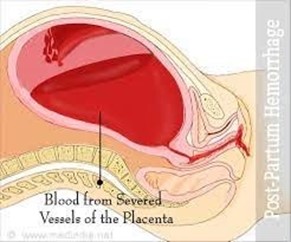A nurse is assisting in the care of a client who is experiencing a postpartum hemorrhage.
Which of the following medications should the nurse plan to administer?
Terbutaline
Methylergonovine
Magnesium sulfate
Nifedipine
The Correct Answer is B
b. Methylergonovine.
Explanation:
Postpartum hemorrhage is a significant complication that can occur after childbirth. Methylergonovine is a medication commonly used to manage postpartum hemorrhage. It is an ergot alkaloid that helps to contract the uterus, reducing bleeding. It is typically administered either intramuscularly or orally.
Option a, Terbutaline, is a medication used for the management of preterm labor by relaxing the uterine smooth muscles. It is not indicated for postpartum hemorrhage.
Option c, Magnesium sulfate, is a medication used for the prevention and treatment of seizures in patients with preeclampsia or eclampsia. It is not specifically indicated for postpartum hemorrhage.
Option d, Nifedipine, is a calcium channel blocker commonly used to manage hypertension. It is not indicated for postpartum hemorrhage.
It's important to note that the specific management of postpartum hemorrhage may vary depending on the underlying cause, severity of bleeding, and individual patient factors. The healthcare provider will determine the most appropriate interventions and medications for each case.

Nursing Test Bank
Naxlex Comprehensive Predictor Exams
Related Questions
Correct Answer is D
Explanation
Montelukast is a medication commonly prescribed for the management of asthma symptoms, including the prevention of asthma attacks. The recommended dosing regimen for montelukast is typically once daily, usually in the evening. This helps to provide continuous control of asthma symptoms and reduce the risk of asthma exacerbations.
Administer the medication when the toddler has an acute asthma attack: Montelukast is not intended for immediate relief during an acute asthma attack. It is a long-term control medication aimed at preventing asthma symptoms and reducing the frequency and severity of attacks. For acute asthma attacks, a short-acting bronchodilator such as albuterol is typically used.
Provide an additional dose of the medication prior to physical activity: Montelukast is not specifically indicated as a pre-exercise medication for asthma. However, in some cases, healthcare providers may prescribe it if exercise-induced bronchoconstriction is a significant concern. It is important to follow the specific instructions provided by the healthcare provider regarding medication use before physical activity.
Mix the medication in juice prior to administration: Montelukast tablets or chewable tablets should not be crushed or mixed in juice unless specifically instructed by the healthcare provider. They should be administered whole and taken with water. If the child has difficulty swallowing tablets, alternative formulations like oral granules or chewable tablets may be available.
Correct Answer is D
No explanation
Whether you are a student looking to ace your exams or a practicing nurse seeking to enhance your expertise , our nursing education contents will empower you with the confidence and competence to make a difference in the lives of patients and become a respected leader in the healthcare field.
Visit Naxlex, invest in your future and unlock endless possibilities with our unparalleled nursing education contents today
Report Wrong Answer on the Current Question
Do you disagree with the answer? If yes, what is your expected answer? Explain.
Kindly be descriptive with the issue you are facing.
